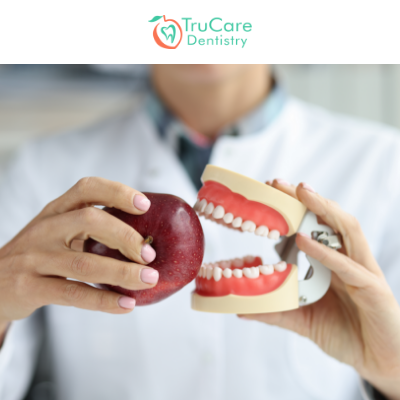
With a motive to lead a healthier lifestyle, many people are turning vegan. Though becoming vegan or veganuary is completely a personal choice. Eating a plant-based diet offers numerous health benefits including oral health benefits. In this blog, we will focus on the impact of veganuary on our overall oral health.
An understanding of veganuary
Veganuary is the latest diet trend taking over in 2022. It is an annual challenge run by a UK nonprofit organization that educates people about the benefits of a vegan lifestyle and encourages them to follow a vegan lifestyle for January. The event actually started in 2014 and got a lot of popularity with an increased number of participants each year.
Veganuary is all about going vegan for a month which involves eating a more plant-based diet and cutting animal products for the first month of the year. There are several health benefits of going vegan. A plant-based diet that includes a variety of fruits and vegetables is associated with reducing the risk of:
- Diabetes
- Heart diseases
- Cancer
A plant-based diet is usually rich in vitamins, minerals, fiber, phytonutrients, and hydration. Besides, adding more fruits and vegetables to your diet promotes a healthy gut microbiome.
Impact of veganuary on our oral health
The trend of eating a plant-based diet is packed with positives for oral health as well. It is vital to note that nutrition is the main component of oral health. Besides, oral health impacts our overall health. For instance, periodontal disease is often associated with increased risks of diabetes, cardiovascular disease, and Alzheimer’s.
Nutrition is a key component of oral health. Its influence extends to our inflammatory and immune status, directly affecting the periodontal condition. A plant-based diet is rich in antioxidants and phytochemicals that benefit oral and periodontal health.
When talking about oral hygiene, various pieces of evidence suggest that vegans are doing much better in maintaining their oral hygiene. Those who are vegan are less likely to smoke, drink alcohol, or consume sugary beverages. This benefits their oral health.
Risks associated with a vegan diet
If not informed or educated properly, vegans are much more likely to suffer from issues like:
- Tooth decay
- Increased acidic pH levels in the mouth, and
- Lack of saliva production
As compared to people who eat more conventional diets, vegans are more likely to face the above-mentioned issues due to the removal of certain foods from their diet. Yes, removal of certain food items from the diet may lead to a deficiency of key vitamins and nutrients such as vitamin D and calcium that are vital for overall dental health.
Let’s look at some of the key risks that one should be aware of when following a vegan diet:
Deficiency of calcium:
Calcium is the key need of our body that not only supports good bone health but also ensures healthy teeth and gums. Dairy products and fish are some of the best sources of calcium. However, vegans cannot have these options. To fulfill the need for calcium in the body, vegans must supplement their diet with an adequate amount of plant-based sources that contain calcium. Some of these sources are soybeans, tofu, choy, kale, almonds, broccoli, etc.
Deficiency of vitamin D:
Vitamin D is required to absorb calcium. Some of the best sources of vitamin D include eggs, fortified milk, fatty fish, etc. Apart from these food items, the best source of vitamin D is the sun. To get a sufficient amount of vitamin D, you must spend some time outdoors in the morning under the sun. Vegans can also supplement vitamin D from plan-based food such as mushrooms.
Deficiency of amino acids:
Amino acids such as arginine play an important role in preventing cavities and gum diseases by eliminating excess dental plaque. Amino acids, particularly arginine, are found in meat, fish, poultry, and dairy products. To get an enough amount of amino acids, vegans must supplement their diet with plant-based products like lentils, chickpeas, soy products, and pumpkin seeds.
Risk of dental erosion due to sugar consumption:
Vegans are at a greater risk of dental erosion due to the high consumption of acidic food and other food that are high in natural sugar such as fruits. Besides, many vegans prefer eating starchy foods like pasta as a substitute for meat which can result in cavities. This happens because the starchy food gets broken down in the mouth into sugar. Therefore, it is advisable to limit the consumption of such food items.
Now the question is whether to go vegan or not? Well, you can definitely go vegan. Just make sure to supplement your diet with the right ingredients to ensure a healthy and beautiful smile. Here are some of the key ways that you must follow to maintain good dental health and hygiene.
Tips to maintain oral health on a vegan diet
- Follow a well-balanced plant-based diet
- Drink plenty of water to maintain a good saliva flow and a healthy pH level in the mouth
- Limit the consumption of acidic and sugary foods
- Avoid frequent snacking and grazing to prevent plaque and cavities
- Rinse your mouth properly with water after every meal
- Brush your teeth after meal consumption (wait at least 30 minutes after your meal to prevent enamel erosion)
- Brush and floss your teeth at least twice a day
- Use a soft-bristled toothbrush and fluoride toothpaste
- Visit your dentist every six months for dental check-ups
To wrap up, if you are considering a vegan diet or already living a vegan lifestyle, you must be aware of all the ways to ensure good dental health. You must consult with your dentist to get the right advice regarding your dental health when following a vegan diet. If you are in G.A. Roswell, you must schedule an appointment with professionals at TruCare Dentistry. The professional dentists at TruCare can guide you properly to keep your teeth and smile healthy.
